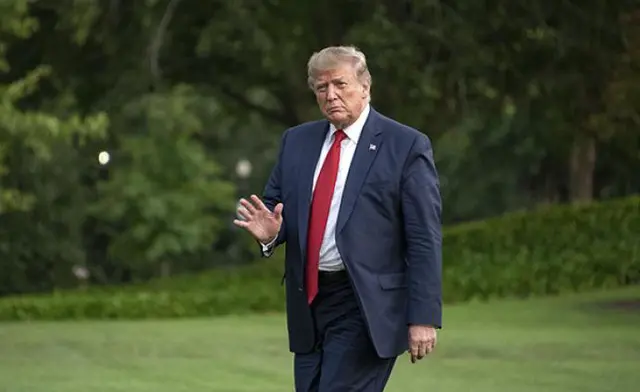Angela Merkel’s new coalition government is testament to her skill as the great survivor, and to the unwisdom of underestimating her ability to outmanoeuvre opponents. Alliances of Germany’s two main parties are dubbed “elephant coalitions”. The one agreed this morning lumbers into life on very different terms from the last GroKo (grand coalition). “Two tired elephants, dancing for the last time,” was the verdict of one speaker at the recent special conference of the Social Democratic party (SPD), calling for an end to deals with “the Merkelator” and her Christian Democrats.
In the end, she prevailed by a decent margin. There was a two-thirds majority among SPD members for remaining in the coalition, while a third backed a youth-led campaign to shake up left-of-centre politics.
But the difficulty in delivering the coalition (five months since the election) marks a change that will resonate beyond Germany’s borders. It shows the renewed power of party grassroots, and the increasing influence of members over grandees.
For one thing, this deal placed Merkel’s fate squarely in the hands of SPD members (including 20,000 new sign-ups) – a move that has given voice to the left of the party. A two-thirds vote of support for GroKo is fine for Merkel – but much less so for the SPD, digesting poor election results and with a probable new leader, Andrea Nahles. She will need to apply pressure on the new government for a clearer leftish agenda – to prevent the one-third of disappointed SPD members from turning into a Corbyn-inspired movement for sweeping change.
Yet the greatest challenge to business-as-usual comes from another base: Merkel’s Christian Democrat party, from whose restless ranks her successor will emerge. The promotion to party secretary of Annegret Kramp-Karrenbauer, a flinty Christian Democrat from the Saarland in western Germany, marks a departure from years of Merkel-worship and redistributes power in the party from a close-knit pro-Merkel faction in Berlin.
“AKK” this week described dealings with Merkel as a “good, balanced relationship of trust and respect”. It’s a tone that cannily pays its dues to Merkel’s leadership, while putting Kramp-Karrenbauer herself at eye-level with the chancellor, and speaking for members – underlining that they have been taken for granted.
Kramp-Karrenbauer tartly observes that the party’s list of broad policy objectives has barely changed since 2007 – “the year the first iPhone was released”. Lines of dissent with the SPD lurk in her assertion that not enough has been done in Berlin to address the integration of the refugees the chancellor welcomed in large numbers in 2015. And she has pointed out, in language sharper than has been conventional on Team Merkel, that voters are “furious that people coming here for protection and aid have lied about their ages and countries of origin”.
If Merkel has previously swept aside unease on this issue, she must now deal more openly with anxieties about integration and the details of how to deal with irritations and fears that arise from it. She said last Monday that Germany had “no-go areas”, where police and public fear to tread. That frankness, if handled with good sense by the coalition, could keep at bay the far right, which has risen in part because conservative voters felt their concerns went unheard.
It may, in the short term, give Alternative for Germany (AfD) more “told-you-so” ammunition with which to make trouble in its new strengthened role in parliament. The Merkel-led coalition intends to head that off by capping annual refugee numbers at 220,000 (a concession for a chancellor who refused a cap in 2015).
Germany’s good fortune, however, is that a healthy budget surplus means there is money to deal with the difficulties. Its left wing will be happy to get more childcare, and curbs on short-term contracts. And for the right there will be some tax cuts and a more forthright acknowledgment of the difficulties of openness to refugees.
The most troublesome conundrum after all this is that it will be hard to convince the sizeable chunk of voters who drifted to parties of the far left, far right and the Greens last year that one more dance of Germany’s elephants represents a radical shift. The AfD in particular will gain more oxygen as the official opposition party.
For Europe (and Britain approaching Brexit), there will be little change. Merkel signals emphatically in private that she sees the French president, Emmanuel Macron, as sharing her worldview, and will use her remaining time to consolidate that link. Theresa May’s declared “trade-offs” will have to be approved, like it or not, by a renewed Franco-German duopoly. A weakened SPD makes the coalition even more avidly pro-EU. So the new alliance will move faster on European fiscal integration, and seek to edge towards a combined eurozone budget, though at a cautious pace.
None of this is easy listening for May. Her Brexit secretary, David Davis, has pre-emptively been seeking better relations with Team Macron – tacit acceptance by the cabinet’s Brexiteers that appealing to Merkel to break the logjam with EU negotiators has not worked. But it is still Germany, as the EU’s most successful economy, that will remain the biggest influence on what kind of Europe emerges from the continent’s recent convulsions. On that, Merkel is where she aims to be in her final stint at the helm – unchallenged.
The author Anne McElvoy is a former foreign correspondent, and the author of The Saddled Cow, East Germany's Life and Legacy. She is currently a broadcaster and senior editor at the Economist
(GUARDIAN)
 简体中文
简体中文

